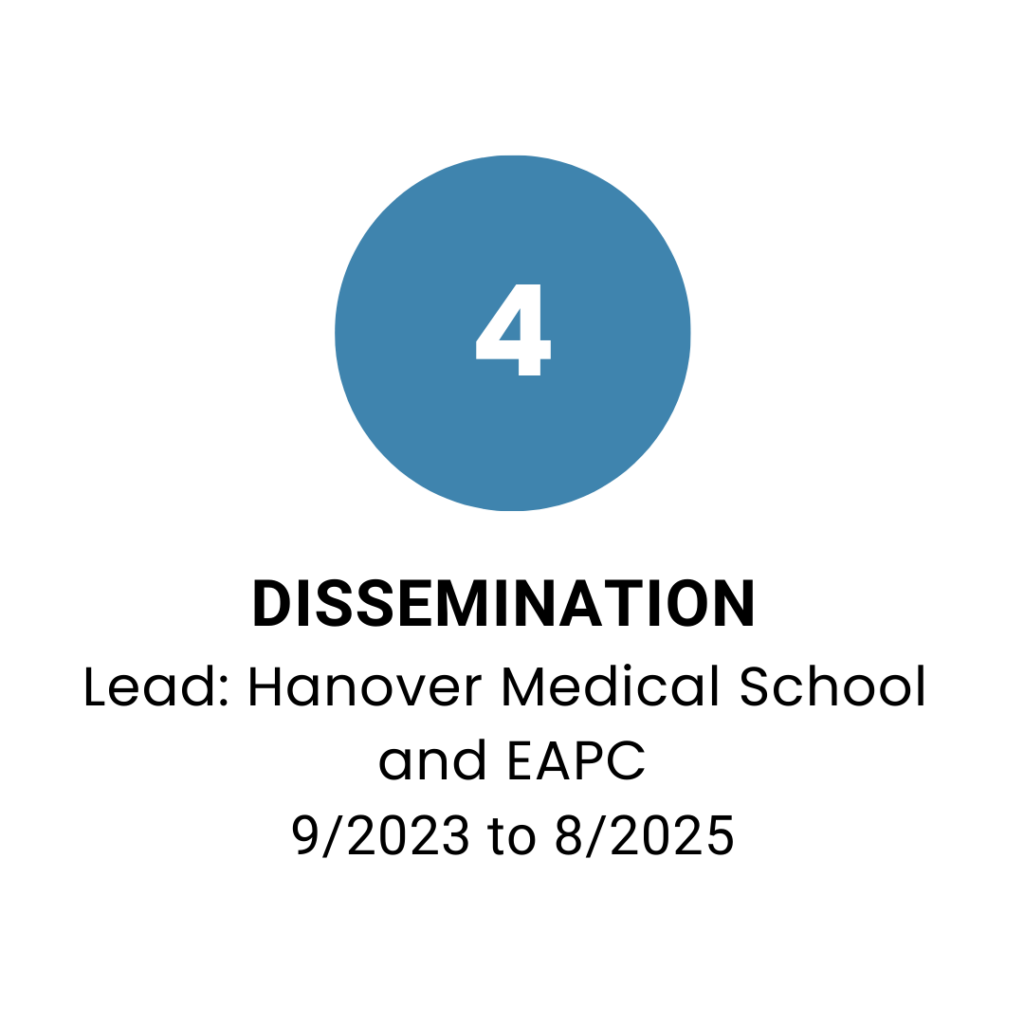Breaking bad news is an inherent challenge in the daily clinical work of healthcare professionals, requiring empathy and effective communication. Recognising the need for increased awareness and training in healthcare communication, the VR-TALKS project emerges as an innovative solution.
Project Goals
The main goal of the project is to introduce virtual reality (VR) into healthcare teaching modules that teach communication between caregivers and patients. VR technology is mainly used for practicing the delivery of bad news and the resulting interactions. The VR technology will enable students to evaluate and comment on reactions, suggest improvements or other approaches, and describe and analyse the patient’s behaviour and experience as well as their own.

project schedule

The main objective of this first work package, organised by Leiden University, is to plan the implementation and evaluation of a VR application for training difficult communication in healthcare education. This includes the analysis and selection of suitable teaching modules and consideration of possible challenges. For this purpose, a survey was conducted to collect input from students, lecturers and instructors, as well as best practices for use in teaching. In addition, the project partners have already identified suitable teaching modules and can thus ensure the sustainable and effective integration of the VR application in all participating faculties.

The main goal of this work package is to create representative scripts for a VR application that simulate difficult communication situations in healthcare practice. Based on the knowledge of ComGuide, scripts will be developed based on real clinical situations, such as the communication of serious diagnoses.
The scripts consist of different reactions of an avatar patient during conversations with healthcare professionals. The collected findings from the clinical practice of all partner universities are incorporated into the scripts. Initially created and tested in English, the scripts will be translated into several languages (Czech, Dutch, German, English, Portuguese) and will serve as the basis for the technological development of the VR application, which will be piloted in the next work package.

The aim of work package three, led by Cork College, is to conduct a mixed-method study to test the feasibility, usability and acceptance of the VR application from the perspective of students and teachers. Developed and validated data collection tools and the cases created in the VR applications will be used. The specific objectives are: (i) to test feasibility, usability and user satisfaction with the VR application at all seven universities; (ii) to explore students’ and lecturers’ experiences with the VR application; (iii) to identify barriers and facilitators for the implementation of the VR application into the curriculum; and (iv) to formulate concrete recommendations for the full integration of the VR application into the curriculum at all seven universities.

The long-term sustainability of the project will be ensured through the cooperation with the European Association for
Palliative Care (EAPC), which is ready to disseminate the project across Europe. Together with a team from Hanover Medical School they will use various channels and engage with the professional community through articles in professional journals and presentation at selected congresses to spread awareness and the potential of VR applications as a modern teaching method.
Funding
The project is funded by the ERASMUS+ Programme through the Centre for International Cooperation in Education in the Czech Republic, “Dům zahraniční spolupráce” (DZS), spanning from 01.09.2023 to 31.08.2025 (24 months).
